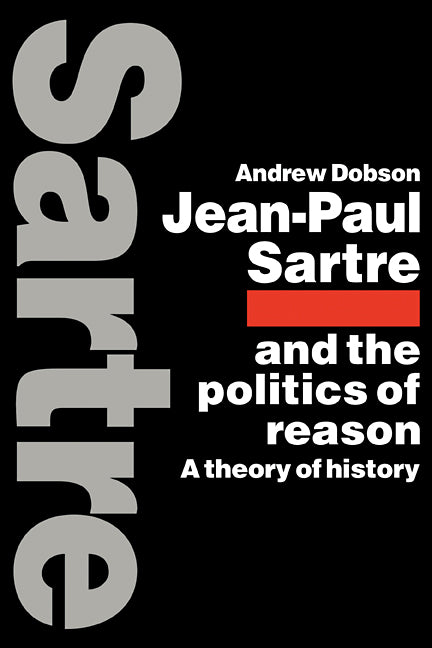Freshly Printed - allow 8 days lead
Couldn't load pickup availability
Jean-Paul Sartre and the Politics of Reason
A Theory of History
A reading of Sartre's later works, charting his transformation from existentialist to committed Marxist defender.
Andrew Dobson (Author)
9780521115070, Cambridge University Press
Paperback, published 25 June 2009
212 pages
22.9 x 15.2 x 1.2 cm, 0.32 kg
Andrew Dobson charts Sartre's transformation from novelist and apolitical philosopher of existentialism, before the Second World War, to a committed defender of Marxism and Marxist method after it. Examining Sartre's post-war work in detail, he shows how the biographies of Baudelaire, Genet and Flaubert, often considered tangential to his main oeuvres, are in fact central to this defence of Marxism, and should therefore be read as acts of political commitment. Andrew Dobson's study of posthumous sources, including the extended commentaries in English of Volume II of the Critique of dialectical reason, and in its insistence on reading Sartre's philosophical development as primarily politically motivated. It provides a clear reading of some of Sartre's less familiar works, situating them in an overarching social and political project.
Acknowledgements
Introduction
Part I: 1. Marxism in pre-war France
2. The failure of absolute freedom
3. Force of circumstance - World War Two and beyond
4. The Critique (1): The dialectic
5. The Critique (2): groups
6. The Critique (3): alienation
7. The second Critique
Part II: 8. Biographies and histories
9. Existential psychoanalysis
10. The case of Baudelaire
11. The case of Genet
12. Search for a method
13. The case of Flaubert
14. Conclusion
Bibliography
Index.
Subject Areas: Western philosophy, from c 1900 - [HPCF]


